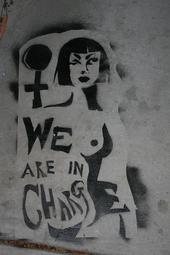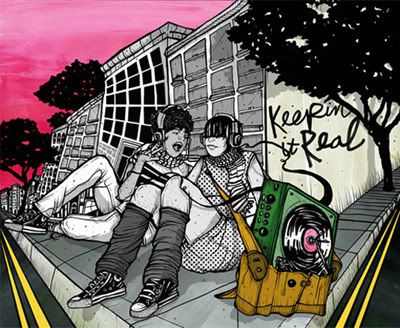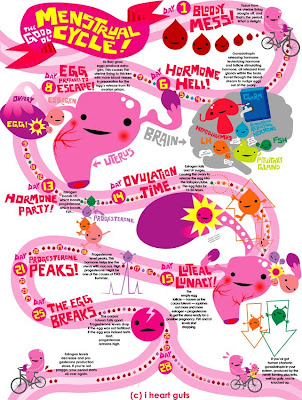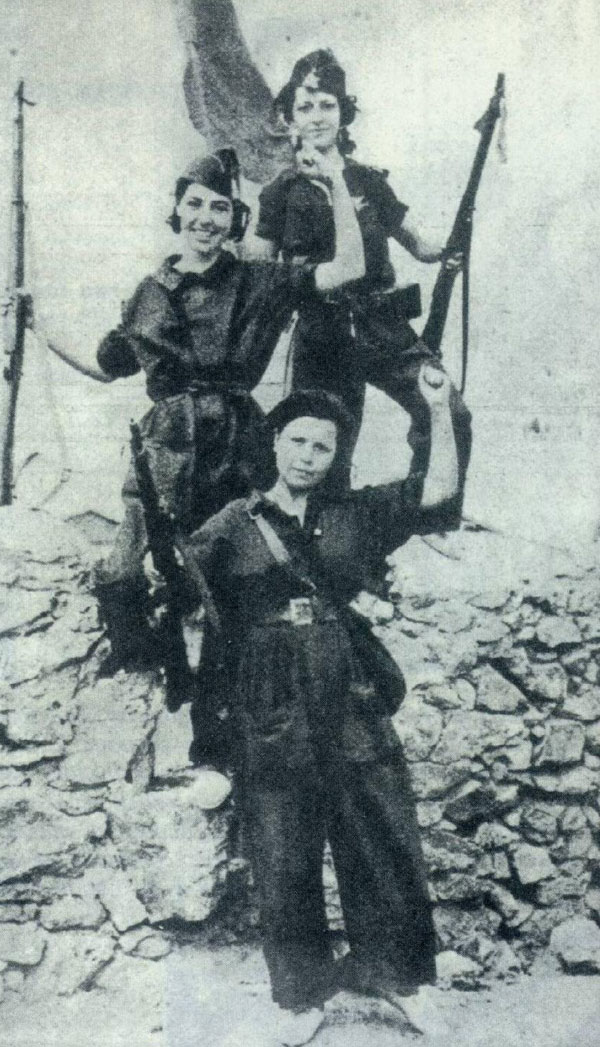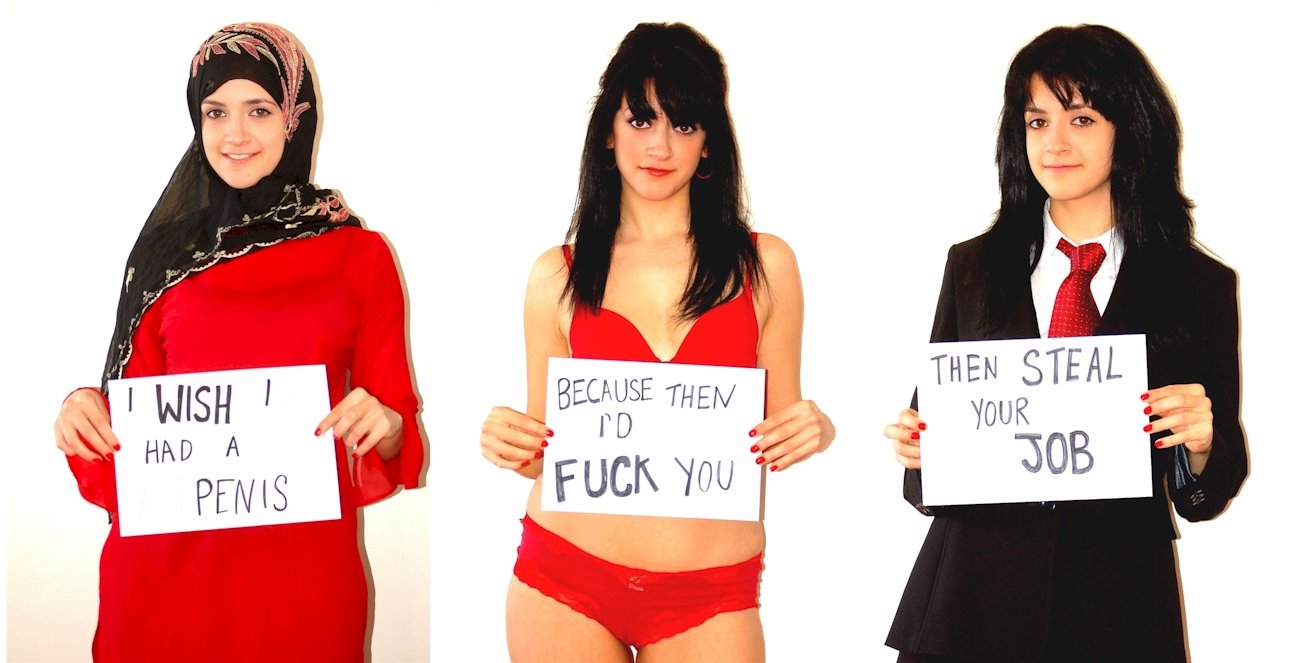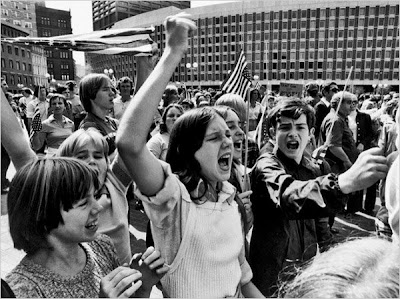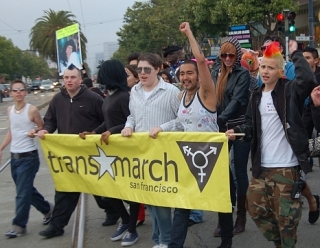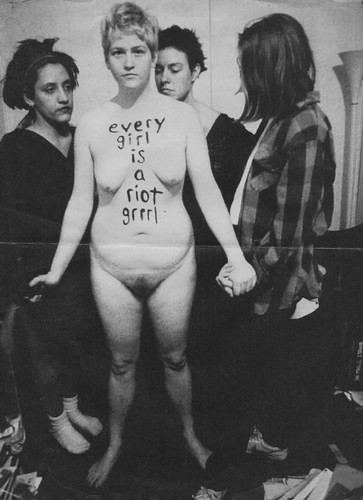I never write because I never have time, but lately I've been really annoyed with the concept of privilege. Not out of denial because I have it. I know I have and have no problems saying I have it, but because the constant focus on privilege does not change how things structurally occur in society. In fact, I'd say it's a distraction from the actual issues in society.
So I came across this white rapper who did a piece about how he's white, a raper, and the dynamics of this and so on. Here is a more specific example: http://www.guante.info/2011/04/confessions-of-white-rapper-new-poem.html
His name is Guante and he's from Minneapolis.
This piece of his explores his experience of being white and what that means in the hip hop community. A lot of people like it. In fact, a lot of people love it. It has also been posted on some blogs aimed toward people of color.
So, my concern and/or question, thoughts, whatever is ...
Basically, Guante put himself in the SAME position of power. Because now, everyone loves him and is applauding him for calling out his own privilege. This puts him in a safe and comfortable spot. His whiteness grants him privilege (privilege & oppression is everywhere and everyone experiences both), but because he speaks out on it, it places him the same position of power and it doesn't change anything.
Then people applaud him for speaking on this. He's posted all over the Internet. People think it's SO COOL that he did this.
Why? Why is it awesome for him to put himself in the same position of power that he is already in. He's a white male in a society that has racism, sexism, so on. He hasn't changed anything structurally to take away privilege. His piece on his own privilege doesn't take away his privilege. It keeps him in the position of power.
Can he relax now that he's called himself out?
Does constantly focusing on privilege do anything to change how things structurally are?
Does his piece liberate anyone?
Does it get rid of racism? Sexism?
Here's a couple article to go along with what I am saying:
Realizations: Identity politics
The past couple of years I have questioned identity politics. The ideology has gaps. I would see parts of the ideas go so far and extreme, that there was no way out.
For example, I could discuss each identity of mine (gender, mother, sexuality, race, ability, so on) and call out for inclusion into society and culture of each. Basically, identity politics theorizes that identities reflect one's politics. Unfortunately, inclusion does not change structural problems.
Another person who has more oppression (based on gender, sexuality, race, so on) than me could call me out for not including them in one of my ideas and/or arguments. Thus, the central focus of identity politics is focused on the marginalized person whoever that is.
This may sound like a favorable way to approach things. However, I think it becomes so convoluted that nothing makes sense anymore. New identities are constantly being added. Of course, I recognize that everyone has different experiences, not everyone is white or male and so on. But when do the identities stop? Is there an ending if I simply focus on identities?
When I started to re-think identity politics, I reflected on how much I called out men on male privilege. Usually, I wasn't responded to with many answers. In some ways, I can understand why. What do I really say to someone who tells me "you have privilege!" out of anger and frustration? I can understand the anger and frustration (yes, it angers me off that men make more than women, for example). But when I tell a man this, what can he say? That he's sorry? Can he make his privilege disappear? Not in our society and culture, unfortunately. As a white person, I know I have privilege, but I also know that simply because of my awareness, I can't get rid of it. It's a structural issue.
When I started looking at the underlying issue of why I was constantly calling men out for their privilege, I realized I had a lot of anger toward men. Mostly it was based on past experiences I had with a couple of men. I also realized that I was jealous and resentful toward men. I wish I had what they had. I wish I wasn't treated differently because I was a woman. I wish my gender didn't experience more violence. I wish there weren't policies and ideologies based on my gender.
Recently, in my feminist theory class, we were talking about the idea of resentment, that philosophers like Soren Kierkegaard and Friedrich Nietzsche first wrote about. Slavoj Zizek has expanded on the idea, more recently. Honestly, I thought the realization of my idea of my resentment toward men was a new idea. Nobody ever discusses resentment when discussing identity politics and privilege.
Basically, the idea of resentment is creating an illusion of an outside evil or an enemy. This evil or enemy is what to be blamed for one's inferiority. There is clearly pain associated with being oppressed (I would argue that all of us, in this culture and society, is oppressed on some level and yes, even straight, white men). One creates a way to deal with the pain, they create an external scapegoat. When I was dealing with the pain, my scapegoat was straight, white men. There are many other scapegoats. I can be considered a scapegoat for others.
I could tell everyone that I acknowledge my many privileges, however, as an individual, I cannot escape this privilege. If I could, I would. Oppression needs to be looked at from a structural standpoint.
Once I realized that I had resentment toward men, most of my anger disappeared. My energy was focused on structural issues, instead of individual men. I accepted that I am a woman in a sexist culture and radical structural changes need to occur in order for sexism to disappear.
Lastly, I don't have an answer on how to change these things, but I think these issues need to be re-directed in more constructive conversations.
Language and fines
Recently the NBA commissioner David Stern fined Kobe Bryant $100,000 for using a homophobic slur.
While I do not support what Bryant said, do not agree, and am a part and an advocate of the LGBTQ community, the fine shocked me.
Many LGBTQ organizations applauded the fine and demanded an apology from Bryant. He did apologize.
He is however, appealing the fine (honestly, I don't blame him). Once he apologized, it seemed as though there were sighs of relief, as if, homophobia was erased because Bryant apologized and got a fine.
$100,000 will do nothing (where does that money even go? To help the LGBTQ community? Probably not). My first thought was that Stern fined him to make the NBA "look better" by trying to "combat" homophobia.
When in fact, fines will not make homophobia go away. It only sets up a situation in which people will fear saying that word because of the fine.
It doesn't set up a situation in which people actually communicate how they feel when they hear that word.
In other words, the fear of the fine is why people won't say the word, as opposed to discussing how it impacts them or actually doing something about homophobia.
How about the many players who have been accused of rape? Some of them are not fined as much as Bryant was. One example is Garrett Wittels, a baseball player who got a $10,000 bail for being accused of rape.
He also was cleared to go to practice for his team and the court case is still pending.
He raped 17-year-old girls. Raped. He did not say an offensive word; he changed these girls' lives forever.
Wouldn't it be more productive to have conversations about how one feels when they hear a word or phrase, instead of throwing fines at celebrities and/or sports figures and creating laws to not use certain words?
Ironically, while writing this article, I came across an article critiquing the constant onslaught against language called "From Redistribution to Recognition: A Left Critique of Multiculturalism" by Anis Shivani. Shivani discusses a similar argument I am proposing here, so I only thought it was appropriate to cite him in this article.
His argument and where I am going is that politics have started to focus on language and other superficial and surface problems.
Talking about and focusing on language does not change or really challenge systematic oppressions. Basically, it sets up a situation in which people feel this need to constantly not offend people without ever being told the reasons why.
There is a constant response of, "that's offensive! Don't say it!" Followed with a fine (in some situations) or an urged apology (as if that erases sexism, racism, homophobia and so on).
Supposedly, these fines and apologies have become acceptable and only creates a growing internal resentment of the person who said the word or phrase.
A quote from Shivani's article states, "Liberals, rather than changing the economic conditions leading to subjection of women and minorities (a project they gave up on a long time ago), sought to attack some forms of speech, limiting it at times and abolishing it at others. Not economic reorganization but speech performance became the center of attention."
As I was saying, the constant bombardment of language has become the central focus of Liberals.
Instead of doing something to actually change the systematic oppression and economic situation of the oppressed, groups and individuals are constantly calling out people for words they say.
Sure, what someone says may hurt me, but an apology does nothing beyond an individual level.
In fact, I feel more assertive and empowered when I tell someone what they said personally hurt me, as opposed to living off of assumptions that people shouldn't say certain things because it may/may not be offensive to me.
An apology does not change the systematic oppression that sexism has created for being a woman. I've already accepted that our culture is sexist, why do I want to try to reform it?
I'd rather live in a world in which sexism (and other oppressions) don't exist.
Do I have an answer on how to do that? Honestly, no.
However, as a Leftist, I'd much rather see real change occur instead of fines being slapped on celebrities or soft Liberal groups (such as the Human Rights Campaign) publicly demand an apology.
These types of actions take away energy from what is truly going on. It hides true oppressions and the reality of people's lives.
As Shivani said and I am also arguing, speech and not offending people has become the center of attention for Liberals, instead of focusing on the reality of true oppression and economic disadvantages.
I wrote a book: J Is for Justice! an Activism Alphabet
11 months ago




